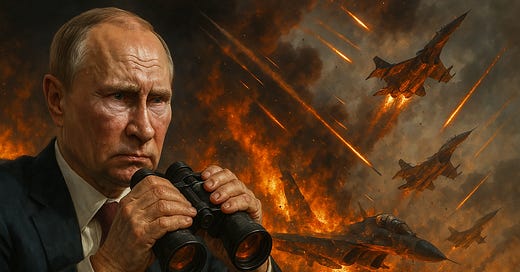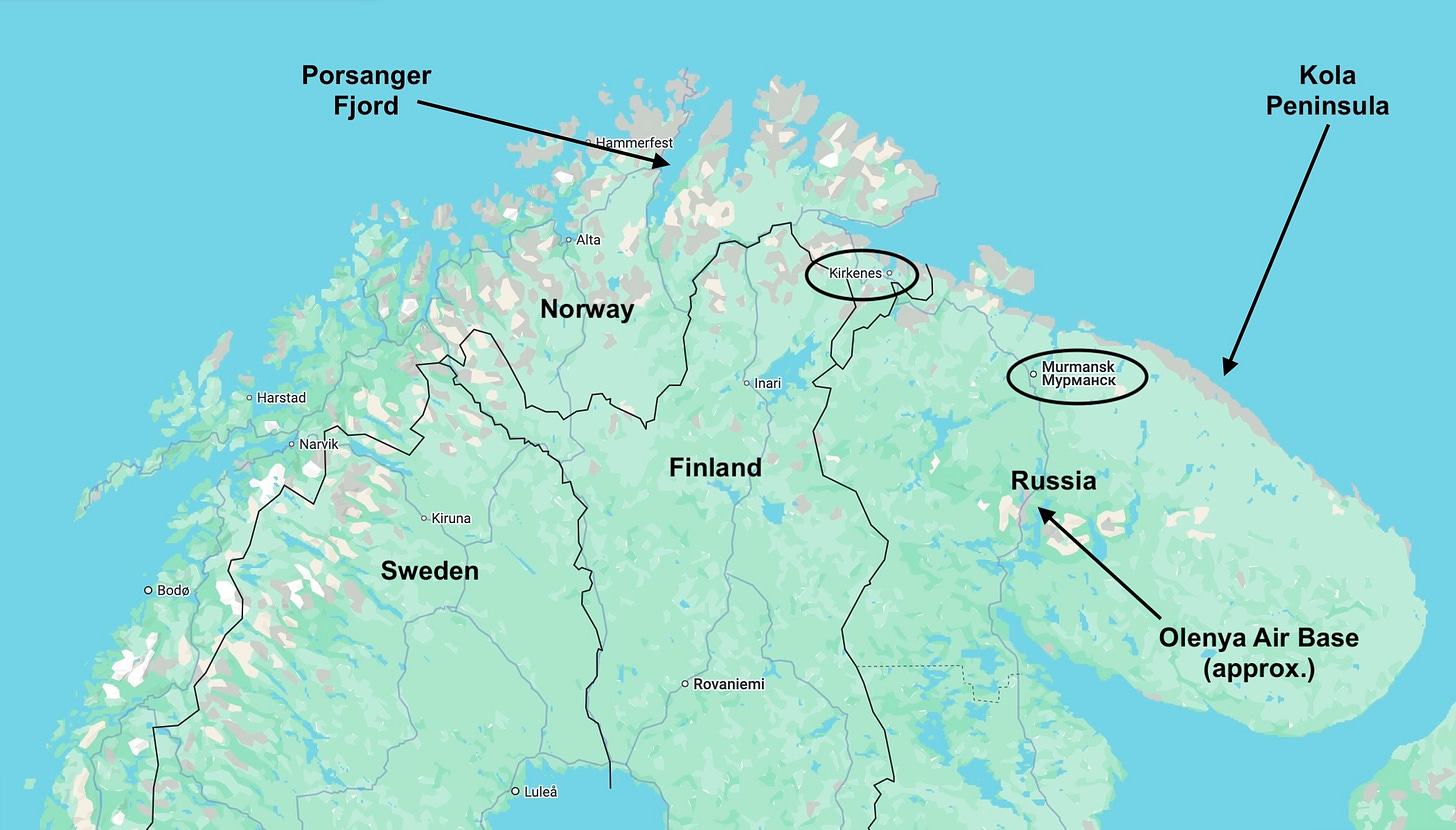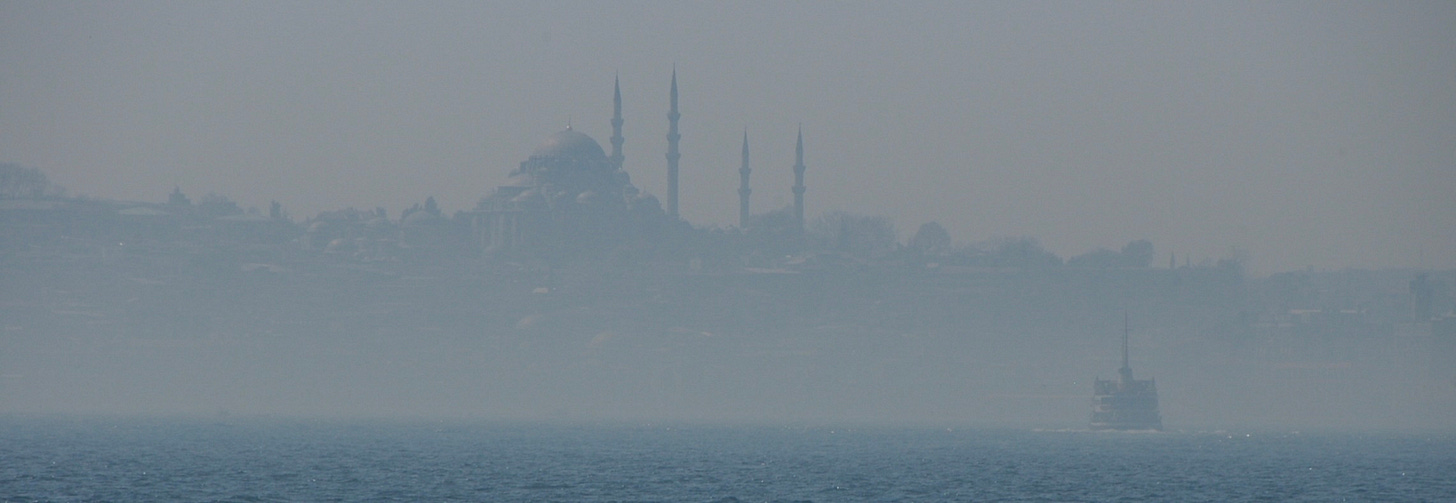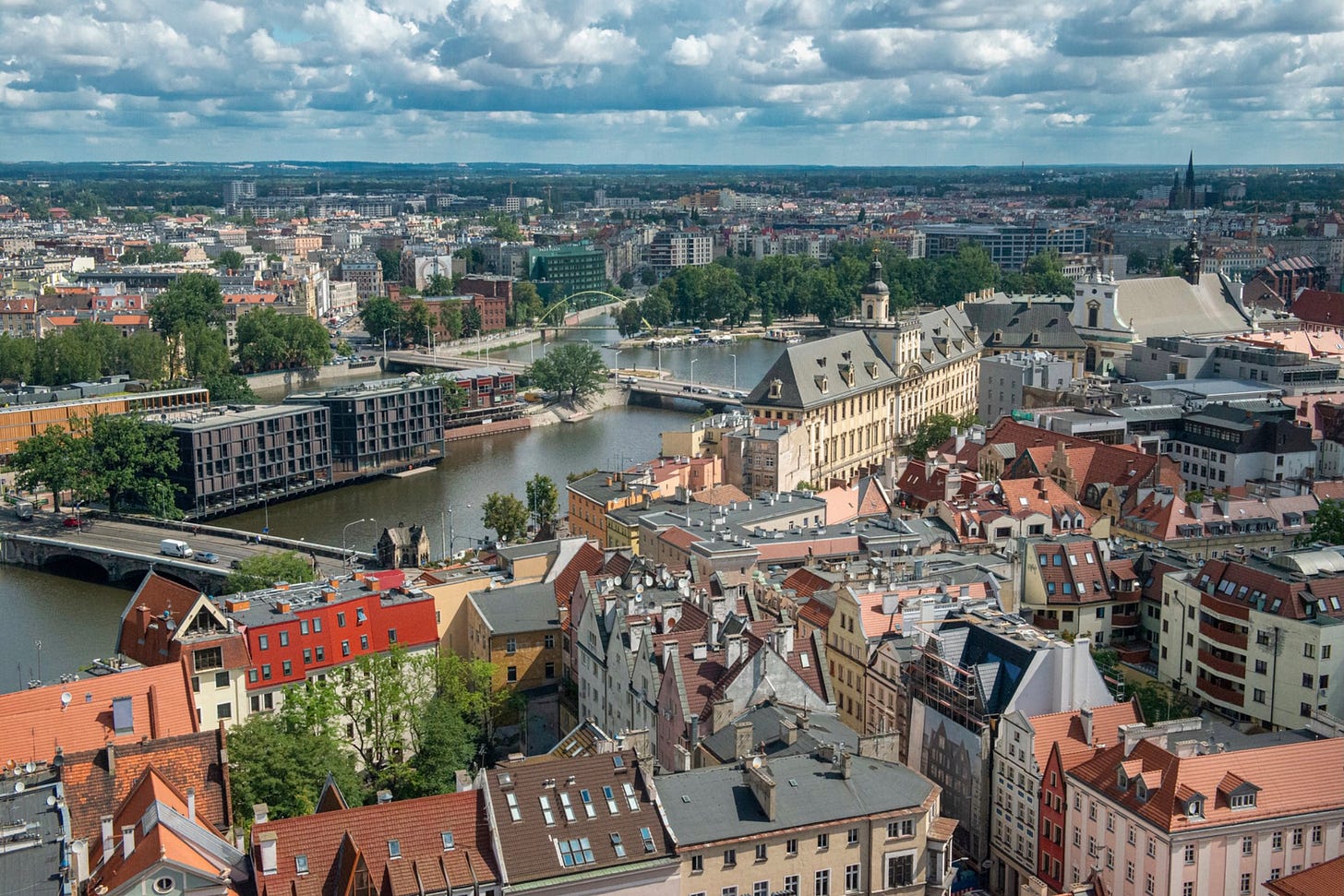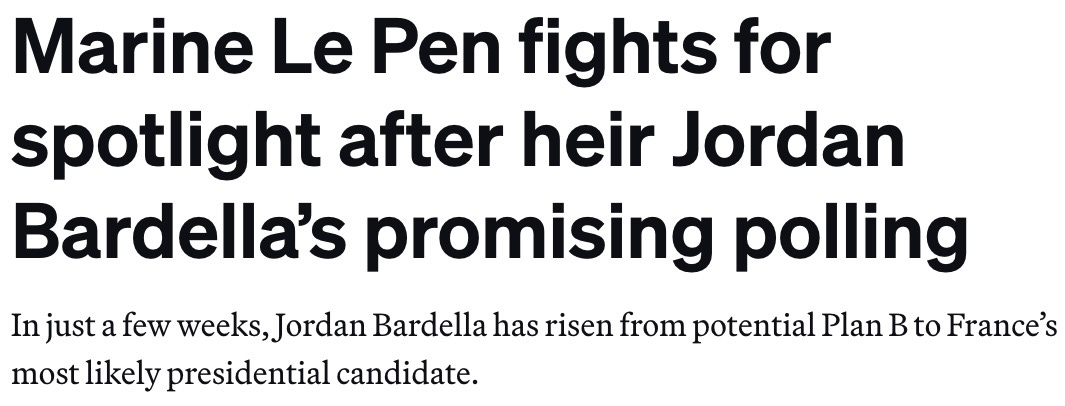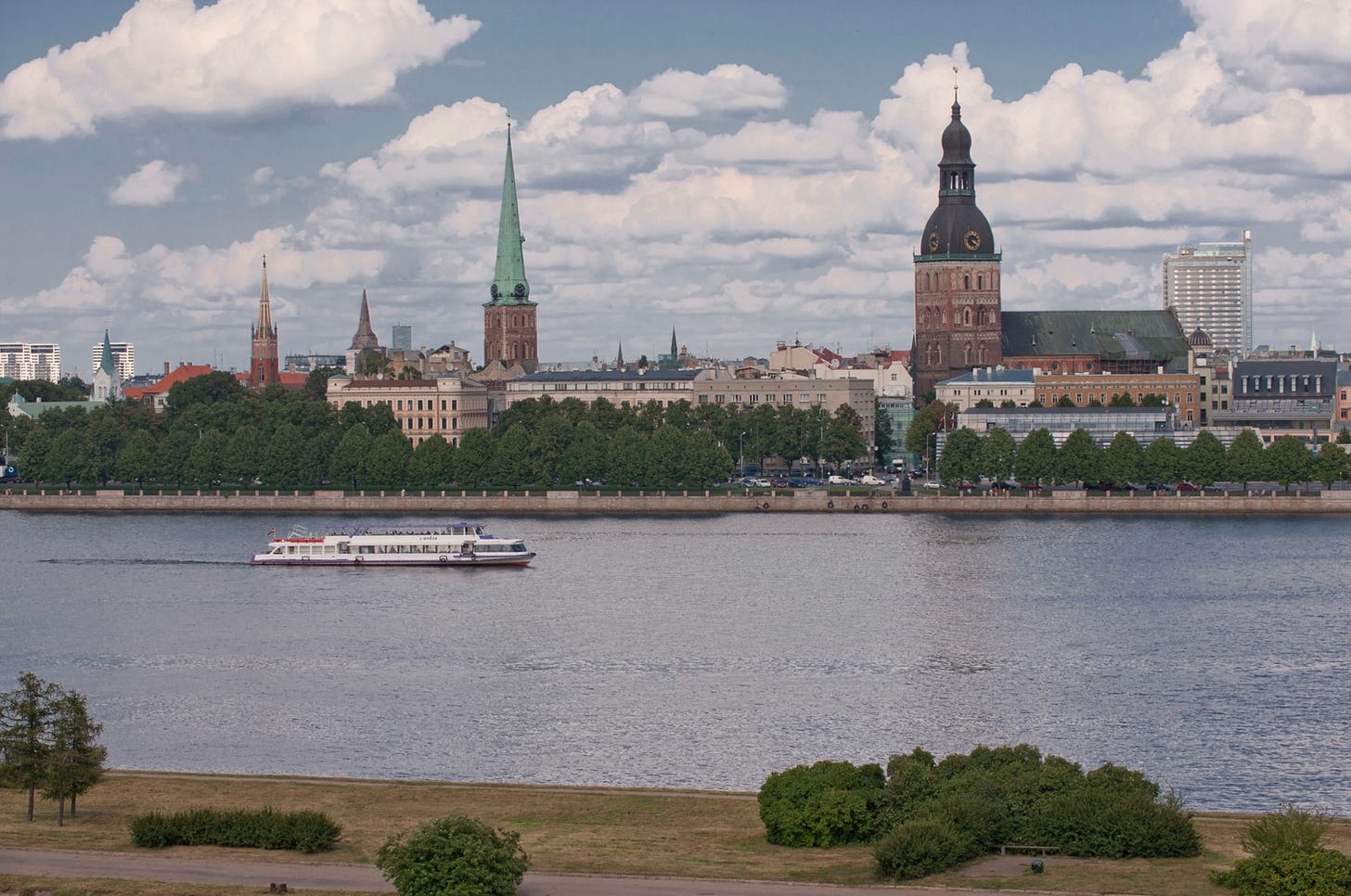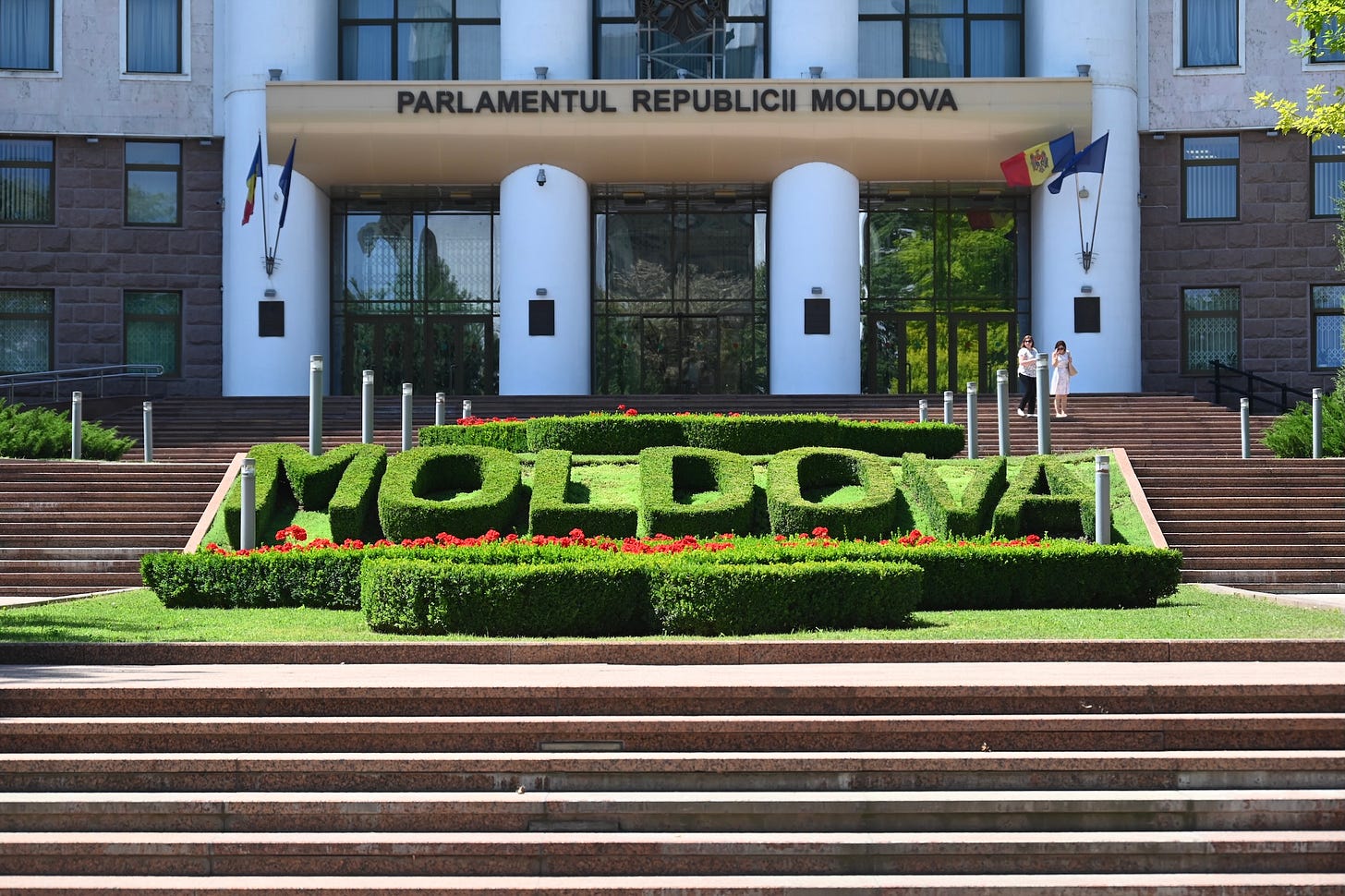Welcome to Common Sense and Whiskey, a short, sharp, weekly look at the world out there.
This week we survey Europe. We consider last Sunday’s Ukrainian drone strikes against Russia in Siberia and the Arctic, look at maneuvering for this month’s NATO summit, we venture out to see what’s going on around the European periphery, and we have a debrief on Poland’s disappointing election. Plus, a scorecard on the rise of the European far right.
If you find any insights here, please consider subscribing to Common Sense and Whiskey. It would be great if you could contribute, but there are no paywalls here. You can always read the whole column.
Let me know what you think.
Here we go:
UKRAINIAN DRONE STRIKES, AND THE ARCTIC: Ukraine’s drone strikes against Russian strategic bombers on Sunday are having ripple effects from Irkutsk Oblast in Siberia, 2,500 miles from Ukraine, all the way north to the Arctic, and west straight through NATO.
“Kristian Åtland, a senior researcher at the Norwegian Defence Research Establishment, was impressed by what Ukraine did. Here’s what he told the Barents Observer:
"This is significant setback for Russia’s long-range strike forces and Russia’s ability to continue to attack Kyiv and other Ukrainian cities with air-launched cruise missiles. Some of the damaged bombers may, of course, be repaired or replaced, but it will take time. In the meantime, Russia will probably continue to attack Ukraine with Shahed drones and other weapons.”
In The Europe Dispatch this week, Minna Ålander makes a fine point:
“Given that Ukraine hit the Olenya airbase in Murmansk in the Russian Arctic, only a little more than a hundred miles from the Norwegian and Finnish border, the Kremlin would surely have been tempted to suggest that Finland and Norway enabled the attacks from their territory. But thanks to the detailed information Ukraine published immediately after the successful operation, Russia had to admit that it was indeed Ukrainians alone who pulled it off.”
And the Finns and Norwegians surely appreciated it.
MORE FALLOUT IN THE ARCTIC: Even before it joined NATO as a charter member, Norway unilaterally prohibited allied forces from training east of Porsanger Fjord (map) at the very top of the country. From the fjord’s eastern shore, it’s around a hundred miles to the Russian border. Later Norway banned NATO surveillance aircraft flying east of about 27° longitude, a little farther east.
These were good faith measures. After all, as the Barents Observer puts it, the Red Army had liberated Kirkenes, a small town at the top of Norway, from the Nazis six months before Norway was fully freed from Nazi occupation. Norway meant, if not exactly to reassure, then at least not to provoke Moscow, whose main naval nuclear assets are based around Murmansk, and elsewhere on the Kola Peninsula, a scant ninety miles away along the coast.
But then, in April 2023, Finland joined NATO without similar restrictions, and it allows exercises much closer to the Russian border. Now, ‘adjustments’ have been made to allied training in Norway, to “facilitate increased training and cooperation with allied countries, including cross-border training with Sweden and Finland," the government says.
The Norwegian state secretary, Marthe Gerhardsen, notes that "We are in another security policy situation.”
Magnus Mæland, Mayor of Sør-Varanger, the municipality bordering Russia to the east, says "All of Norway must be defended, and then all of Norway must be open to training.” Sør-Varanger has ended all cross-border contacts with Russia.
MORE ABOUT THAT DRONE ATTACK: Some called Ukraine’s audacious strikes ‘game-changers,’ and the perhaps over enthusiastic among them claimed Russian nuclear capability had been dealt a crippling blow, because some of the Tupolev-type aircraft that were apparently hit have been part of Russia’s nuclear fleet.
Those strategic bombers have carried ballistic missiles fired against Ukraine, so having fewer of them will surely complicate Russia’s war effort. But just as the United States maintains a so-called ‘nuclear triad’ force comprised of land, sea and air capabilities, so does Russia.
While Russia's land and air based nuclear forces have faced modernization challenges and production delays, it deploys a fleet of 16 nuclear-powered ballistic missile submarines, some featuring advanced stealth capabilities. This is the real heart of Russia’s nuclear triad.
RUSSIA’S WAR ON UKRAINE AND NATO SUMMIT PREP: “The meeting is over. It didn’t end negatively.” That was what the Turkish foreign ministry spokesman had to say about the third round of talks in İstanbul on Monday, and it tells you everything you need to know about the state of the American push for peace. The meeting lasted a little over an hour.
Western parties, meanwhile, spent the rest of the week mostly preparing for looming meetings of heads of state. The G7 gathers in Kananaskis near Calgary, Canada from June 15-17 and Secretary General Mark Rutte’s inaugural NATO summit is June 24-26 on his home turf in The Hague, Netherlands.
Ahead of those meetings, on Wednesday Andriy Yermak, Volodymyr Zelenskyy's closest adviser, made the rounds on Capitol Hill, trying to drum up support for Ukraine. He brought with him “battlefield maps, drone footage of recent Ukrainian strikes on Russian air bases and personal accounts of child abductions.”
I understand there’s a lot of Congressional work to do right now, cutting benefits for Medicaid recipients and the like, but only “roughly 25” senators could take time out from cutting funding for environmental programs, housing assistance, public health research, veterans’ programs and so forth to see Yermak’s presentation.
Disappointing.
Meanwhile on Wednesday, the Ukraine Defense Contact Group of about fifty countries met in Brussels. The biggest news surrounding the meeting was that the usual chairman, the US Defense Chief, had ‘scheduling issues,’ and didn’t attend.
After all, there are so many places more important for him to be than meeting with other defense officials in Europe. He was probably off doing something tough and manly, like, I don’t know, maybe having the name of one time member of the San Francisco Board of Supervisors, Harvey Milk, taken off other things, too?
(The United States Naval Ship Harvey Milk is a tanker currently moored in Mobile, Alabama. The New York Times reported yesterday that it may soon lose its name “to, as the Pentagon put it, ‘better reflect the country’s warrior ethos.’”
Other names of those who, the Times says, apparently may not reflect the country’s ‘warrior ethos’ are “Thurgood Marshall, the first Black Supreme Court justice; Ruth Bader Ginsburg, another Supreme Court justice, who became a feminist icon; Harriet Tubman, who, after being born into slavery, became an abolitionist instrumental in the Underground Railroad; Lucy Stone, a prominent abolitionist and suffragist; Medgar Evers, a civil-rights leader who was assassinated by a member of the Ku Klux Klan; Cesar Chavez, a labor leader; and Dolores Huerta, another labor leader.”)
In the event, the Contact Group meeting was co-chaired by Germany and the United Kingdom.
Hegseth did attend the NATO defense ministers meeting in Brussels yesterday, which agreed to suitably vague ‘capacity targets’ in areas like air and missile defense systems, long-range strike capabilities, ‘improving logistics’ and so on, items their bosses will take up at the NATO summit. And Rutte made the case that all NATO members should devote five percent of their GDP to defense spending by 2032. He hopes that will be the centerpiece of the coming summit.
It looks at the moment as if Europe will invite Ukraine, but Zelenskyy will send surrogates and/or attend by video link. That’s because, speculation goes, Ukraine will be downplayed at the summit so that through Rutte’s managerial theatre, his surely not-to-be-achieved in reality ‘five percent fudge’ will fool Donald Trump into not pulling out of NATO, or Europe, or Ukraine. Yes, these are all adults. And yes, this is sad.
About the fairy tale five percent pledge: three point five percent would be real military spending and the other one and a half percent would be "security-related investments," meaning things like road improvements. And while even three point five percent would be a real gain for most countries, the US representative to NATO, Matthew Whitaker, made a salient point at midweek:
“Let me be clear on this, we cannot have another Wales style pledge where a lot of allies don’t meet their commitments until year 10 or year 11,” Whitaker told reporters. What he means is, in 2014 NATO members set a two percent of GDP goal at their annual summit in Wales. And in the words of JULIANNE SMITH, a former U.S. ambassador to NATO, “given that around a third of the allies don’t even meet 2 percent yet, my question is how long will it take these countries to actually get there?”
An abject example from the Washington Post: “the Trudeau government announced a plan that would have increased defense spending only to 1.7 percent by 2030.”
Meanwhile, after consulting with Keir Starmer and Emmanuel Macron, and Alexander Stubb and Giorgia Meloni about how to handle Donald Trump, Friedrich Merz ventured into the Oval Office yesterday with little reason for Trump to use his Oval Office theatrics to taunt him, since, as the London Times put it,
“In a matter of weeks, the chancellor first rammed through the Bundestag a reform that opens up the possibility of theoretically unlimited public borrowing for military spending, and then signed up to a target to put 3.5 per cent of GDP into the armed forces and another 1.5 per cent into other areas of security, such as infrastructure and cyberdefence.”
And in fact, Merz was given the deferential white European male treatment, which is to say no false documents were wielded before the cameras, and the vice president wasn’t lying in ambush.
THEY’RE NOT SPIES, JUST PUTIN SUPPORTERS: Before we leave Russia/Ukraine matters, a story in Wednesday’s Telegraph bears quoting. It seems Darren Beattie, “(a) senior official who dismantled the US government’s Russian disinformation unit is married to a Russian woman with links to the Kremlin.” Beattie is the acting under-secretary for public diplomacy and public affairs.
“Mr Beattie was a member of the first Trump administration, but after being sacked in 2018 for allegedly attending a white nationalist conference, he reinvented himself as an “alt-Right” media figure.
In May 2021, public records show, he married a Russian woman called Yulia Kirillova in a ceremony in Broward County, Florida.
Ms Kirillova, who according to her Facebook page was educated in Moscow before studying abroad in Canada and Washington DC, is the niece of Sergei Chernikov, a Russian drinks magnate who part-owns a flat with her mother, Natalia.
Mr Chernikov, whose net worth was estimated to be $150 million in 2005, reportedly received a letter of thanks from Putin for his help in the election campaign which first brought the Russian leader to power.”
•••••
UNIMPROVED PROSPECTS FOR POLAND: Up until Sunday it had been a good year for Central Europe. In Poland last Sunday the voices of darkness prevailed (if only just), and the candidate of the populist Law and Justice Party (PiS), Karol Nawrocki, will become president. Here’s why that’s important:
Donald Tusk once characterized the Polish presidency as little more than a palace, chandeliers and vetoes, but the vetoes are the thing. The outgoing president, Andrej Duda, who is a PiS supporter, has managed to block much of Tusk’s program.
The election of Nawrocki means cohabitation will continue in Warsaw through the rest of Tusk’s term (the next parliamentary elections are due by November, 2027). Where Duda was a lame duck (having served two terms), Nawrocki won’t be. He’ll be able to run for reelection and will outlast this Tusk administration.
We can be confident that he’ll be every bit as obstructionist to Tusk’s legislation as Duda has been, and even more so. He will come out of the gate aiming to hold Tusk’s coalition to one term from his first day.
We can expect him to develop a pugilist’s persona, reflecting his biography as a former amateur boxer and football hooligan. He has acknowledged knocking heads in a 2009 brawl between supporters of Lechia Gdańsk and Lech Poznań, for example, calling that kind of stuff "noble battles.”
I’ve heard some calling the election a ‘referendum on Tusk’s performance so far,’ which is a simple story line but a little deceptive. Two important Tusk campaign pledges in 2023 were a start at liberalizing Poland’s strict abortion laws, and a doubling of the income tax exemption for older people, but prior to last Sunday’s election, any such legislation had failed to move through the Sejm, the parliament, and such legislation faced a veto from President Duda in any case.
The whole idea of the Tusk coalition from the beginning was to oust Duda in last Sunday’s election, replacing him with a more friendly president for the remainder of this sitting of the parliament.
Now, since cohabitation (with Nawrocki in the presidency) will continue for the rest of Tusk’s term, the chances of passing key legislation, and accomplishing other items still on the to do list, like rolling back PiS’s prior politicisation of the court system, have become more remote.
Whether Tusk will even last until 2027 is the current chatter in Warsaw. He has called a confidence vote for next Tuesday, and while conventional wisdom is that he will survive the vote, no one expects him to receive a surge of new support.
Prime Minister Leszek Miller predicts the way the coming days will play out:
“Doubt, whispers, parliamentary speculations - all this will contribute to the atmosphere of political siege.”
Then there is the fractured electorate: far-right candidate Sławomir Mentzen and his far right Konfederacja Party came third in the first round of the election, with 13.47 percent. In the runoff, 88 percent of his vote went to Nawrocki. If Tusk’s opponents can engineer an early election, there is talk of a PiS/Konfederacja coalition, which would then outnumber Tusk’s current governing coalition.
(Mentzen is bad news. In 2019 he outlined his so-called "Five points of Confederation," which included opposition to Jews, homosexuals, abortions, taxation, and the European Union. He later claimed these comments were ‘taken out of context.’ PiS hasn’t taken a position of a possible future alliance with Mentzen, but the two are talking.)
Nawrocki’s success brought forth a fresh round of warnings about the European far right, and US officials did campaign for Nawrocki. His victory is a clear setback for the forces of light, but it’s premature to declare victory for the MAGA Internationale.
MAGA sent in Donald, Jr. to campaign ineffectually for George Simion, the losing candidate in Romania. And even a vice presidential intervention didn’t help, as you’ll recall JD Vance castigated Europeans about Romanian democracy at Munich.
(On the same trip he made a show of meeting with the far right AfD co-leader Alice Weidel, and not the Chancellor, but as it happened, the AfD was again kept out of Germany’s ruling coalition.)
FAR RIGHT SCORECARD: Here is a list of elections in Central Europe since 2023, and who won them:
Poland – 2025 Presidential Election
Winner: Karol Nawrocki (Nationalist Conservative, PiS-backed)
Loser: Rafał Trzaskowski (Center-Left, Pro-European)
Czech Republic – 2023 Presidential Election
Winner: Petr Pavel (Independent, Pro-European)
Loser: Andrej Babiš (Populist, ANO Party)
Moldova – 2024 Presidential Election
Winner: Maia Sandu (Pro-European, PAS-endorsed)
Loser: Alexandr Stoianoglo (Pro-Russian, PSRM-endorsed)
Romania – 2025 Presidential Election
Winner: Nicușor Dan (Centrist, Pro-European)
Loser: George Simion (Far-Right Nationalist)
Slovakia – 2023 Parliamentary Election
Winner: Robert Fico (Smer-SD, Left-Wing Populist)
Coalition Partners: Hlas-SD (Center-Left), Slovak National Party (Far-Right)
Besides this list:
— in Germany’s parliamentary election the center-right Christian Democratic Union managed to keep the far-right Alternative for Germany out of the ruling coalition.
—Yesterday in Portugal, Prime Minister Luís Montenegro and his 16-member cabinet were sworn in, following the May 18th snap election, denying the far-right Chega party a place in the new coalition. Chega rose to second place in the election to become the main opposition.
—On Tuesday, in an apparent attempt to bring migration to the fore, far right xenophobe Geert Wilders collapsed the Dutch coalition that brought him proximity to power, seventeen 17 months after winning national elections for the first time. In doing so he seems to have angered just about every potential future coalition partner in the country. The next election is likely in September, and the FT says “polls suggest the Netherlands could return to its more traditional centrist position.”
—And finally in France, where the next presidential election is wide open for now, the Rassemblement National, which leads national polling, is beset with infighting. Its leader, Marine Le Pen, is appealing a ruling that bars her from running for president following an embezzlement conviction, and for now, must grapple with headlines like this, this week:
•••••
TWO SHORT NOTES: The Baltic state of LATVIA was elected (along with Bahrain, Colombia, Democratic Republic of the Congo and Liberia) to a two year term on the UN Security Council this week. It’s true enough that the UN is mostly a talking shop these days, but now at least there’s the potential for some fiery talking when Latvia takes its seat, as Russia is also a permanent UNSC member. Latvia’s two year term starts January 1st. (Also, there’s an interesting story from the Latvia/Russia border in Meduza this week.)
And from MOLDOVA, the Financial Times reported yesterday that “Russia wants to deploy 10,000 troops in the separatist Transnistria region on Ukraine’s border and aims to install a pro-Kremlin government in Moldova to do so,” according to Prime Minister Dorin Recean. He charged that Russia is meddling in Moldova’s politics, as it has since the Soviet collapse, and that it wants to use “the country’s upcoming parliamentary election in September, in the hope that a more friendly future government would allow it to deploy more soldiers.” (Read my Postcard from Moldova from last September.)
•••••
QUOTE OF THE WEEK: A sparkling summary of the impractical charm of contemporary literary fiction. Anne Michaels writes in the 2024 Booker Prize nominated Held:
“Helena was in the garden bringing in tomatoes and lettuces for supper.”
Nice thought, that such a mission could be a full afternoon’s mission.
•••••
That’s everything for the week. Thanks for reading. Please pass this article around and invite your friends to subscribe. And let me hear from you.
See you next week.
Content on Common Sense and Whiskey is free. There’s no paywall, but if you subscribe for $5 a month or $50 a year for 2025, next time I’m in town I’ll come over and wash your car. Maybe.
You tip your Uber driver, I bet. Sure you do. I claim to have probably approximately as much insight as him or her. Just sayin.
Cheers,
Bill


